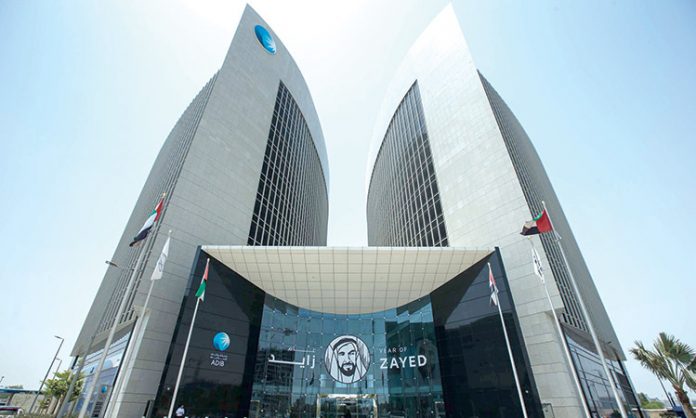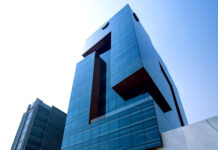Abu Dhabi Islamic Bank (ADIB) reported a net profit of AED 587.6 million and AED 2.5 billion in net revenue for H1 2020. The decline in profitability was predominantly driven by higher impairment charges, due to the unprecedented operating environment, as well as lower revenues, given challenging market conditions. Despite these macroeconomic headwinds, ADIB was able to sustain robust levels of capital, with a capital adequacy ratio of 18.18% that remains well above regulatory thresholds, as well as healthy liquidity and a resilient funding profile with an advances to deposit ratio of 83.1%.
Key Financial Highlights
- Group net revenue for H1 2020 decreased to AED 2,556.6 million from AED 2,887.1 million in H1 2019.
- Group net profit for H1 2020 decreased to AED 587.6 million vs. AED 1,230.5 million in H1 2019.
- Operating expenses of AED 1,258.4 million decreased by 4.0% vs. H1 2019, reflecting the successful implementation of our cost initiatives that were taken to create future efficiencies and capabilities to continue our investment into key strategic and digital programs that are designed to support business growth and enhance the customer experience.
- Credit provisions and impairments for H1 2020 increased by 105.4% to AED 708.6 million from AED 345.0 million in H1 2019.
- ADIB continued to maintain one of the lowest cost of funds in the region supported by an efficient funding strategy and higher CASA which enabled the Bank to maintain one of the highest net profit margins in the market of 3.6% in H1 2020 despite the low rate environment.
- Net customer financing increased by 3.9% to AED 82.0 billion from AED 78.9 billion at the end of H1 2019. The rise was led by growth in Corporate Banking financing.
- CASA deposits increased by 4.2% year on year to AED 74.6 billion, comprising 75.6% of the AED 98.6 billion total customer deposits compared to 71.7% a year earlier.
- Total assets as at 30 June 2020 were AED 124.4 billion, representing a decrease of 1.2% from AED 125.9 billion at the end of 31 December 2019.
- Advances to stable funds ratio was 86.6% at 30 June 2020, compared to 84.0% at 30 June 2019 (84.1% at 31 December 2019).
- The bank’s common equity tier 1 ratio of 12.46% and capital adequacy ratio of 18.18% remain well above regulatory requirements.
H.E Jawaan Awaidah Al Khaili, Chairman of ADIB, said: “This period demonstrated the resilience of the bank’s businesses and the dedication of our employees as we remained focused on delivering uninterrupted services to customers amidst a very challenging environment. At the same time, we took mitigating steps to manage our risk while continuing to invest in initiatives that will support the growth of our business over coming years.
“While cost of credit and the challenging macroeconomic environment largely impacted our profits in the first half of 2020, we have been able to navigate the COVID-19 pandemic reasonably well. Our levels of capital and liquidity continue to remain strong, with both our common equity Tier-1 ratio and advances to deposits ratio increasing from the end of the previous quarter.
“As a bank that puts customers at the heart of everything we do, we have taken proactive steps to alleviate the financial pressure on individuals and businesses during this time, in line with the Central Bank of the UAE’s Targeted Economic Support Scheme in response to COVID-19. We have supported our customers through the deferral of finance repayments, while waiving certain fees to help individuals and businesses manage the difficulties they may be facing.
“ADIB’s investment into its digital transformation strategy has yielded substantial benefits including strong customer and transactional growth. In the first half of the year, we recorded high levels of digital adoption across our retail and corporate banking, and nearly 60% of all our customers are now banking digitally.
“In response to heightened interest from international investors in ADIB’s stock, the bank raised the percentage of foreign ownership to 40%, from 25%, which will accelerate efforts to broaden and diversify the bank’s investor base at a critical time.
“While the economic outlook remains uncertain globally, I am confident that the decisive actions taken by the UAE Government to re-open the economy in a phased and safe manner will lead to improvements in the domestic operating environment. We are already seeing a resurgence in business volumes, as demonstrated in ADIB’s 4% growth in customer financing, and believe that this trend would continue as the recovery gathers pace in the second half of the year.”
Mohamed Abdelbary, Group Chief Financial Officer, added: “ADIB reported net profits of AED 587.6 million for the first half of 2020, a decrease of 52% from the same period last year due to the impact of a challenging operating environment, which saw lower economic activity, lower rates and a higher cost of credit. Despite the low rate environment, ADIB was able to maintain one of the highest net profit margins in the market of 3.6% in H1 2020. This was helped by the positive impact of a low cost of funds, supported by higher CASA balances which comprised 76% of our total customer deposits.
“We have maintained a rigorous discipline in managing costs by successfully implementing a number of optimisation initiatives. This led to a 4.0% improvement in costs compared to H1 2019. This created capacity for us to continue our investments in new digital and strategic initiatives that can help to attract new customers and support ADIB’s long-term growth.
“ADIB continues to operate with strong liquidity and healthy capital ratios and the balance sheet which will allow us to continuously serve our customers. For our H1 2020 reporting, we increased our impairment allowance by AED 363.6 million as a prudent measure to the lingering effects of the Covid-19 pandemic.”











